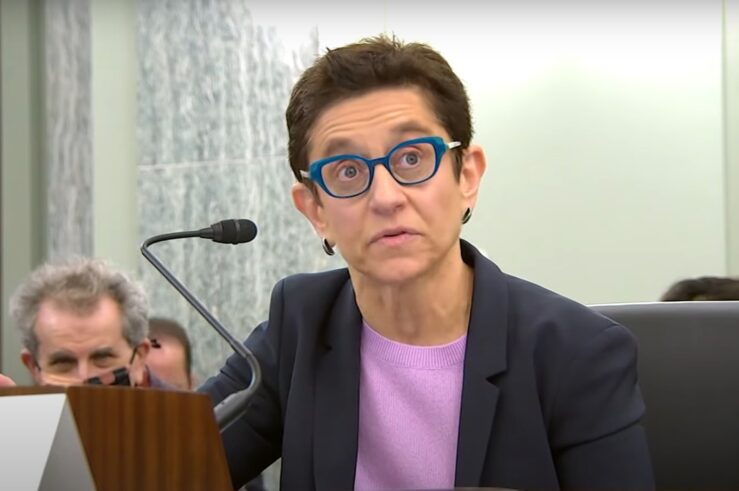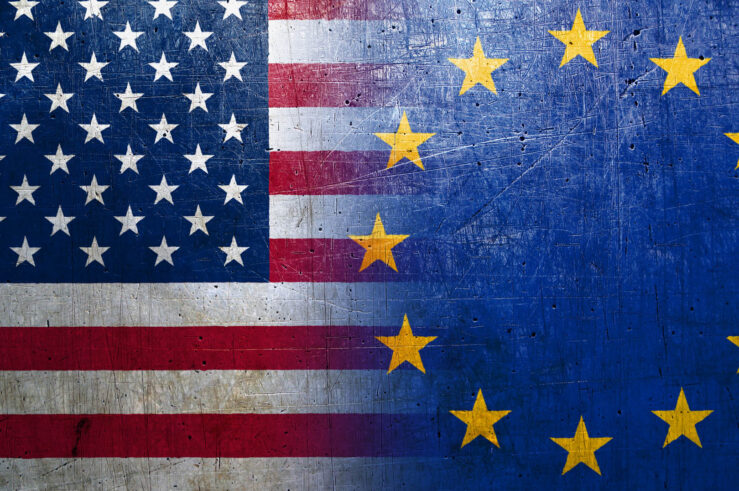Showing archive for: “Tying & Bundling”
How the FTC Could, but Won’t, Use Its Rulemaking Authority to Allow Aftermarket Parts
We used to have a robust aftermarket for non-original equipment manufacturer (OEM) automobile repair parts and “independent” repair services, but car companies have increasingly resorted to design-patent protection to prevent competition in the supply of cosmetic repair parts such as bumpers, hoods, panels, and mirrors. The predictable and intended consequence has been to raise prices ... How the FTC Could, but Won’t, Use Its Rulemaking Authority to Allow Aftermarket Parts
Rules Without Reason
In his July Executive Order, President Joe Biden called on the Federal Trade Commission (FTC) to consider making a series of rules under its purported authority to regulate “unfair methods of competition.”[1] Chair Lina Khan has previously voiced her support for doing so.[2] My view is that the Commission has no such rulemaking powers, and ... Rules Without Reason
In Apple v Epic, 9th Circuit Should Remember that Antitrust Forbids Enhancing, not Exercising, Market Power
On March 31, I and several other law and economics scholars filed an amicus brief in Epic Games v. Apple, which is on appeal to the U.S. Court of Appeals for Ninth Circuit. In this post, I summarize the central arguments of the brief, which was joined by Alden Abbott, Henry Butler, Alan Meese, Aurelien ... In Apple v Epic, 9th Circuit Should Remember that Antitrust Forbids Enhancing, not Exercising, Market Power
The Internationalization of Due Process, Federal Antitrust Enforcement, and the Rule of Law
The acceptance and implementation of due-process standards confer a variety of welfare benefits on society. As Christopher Yoo, Thomas Fetzer, Shan Jiang, and Yong Huang explain, strong procedural due-process protections promote: (1) compliance with basic norms of impartiality; (2) greater accuracy of decisions; (3) stronger economic growth; (4) increased respect for government; (5) better compliance ... The Internationalization of Due Process, Federal Antitrust Enforcement, and the Rule of Law
The Return of (De Facto) Rate Regulation: Title II Will Slow Broadband Deployment and Access
President Joe Biden’s nomination of Gigi Sohn to serve on the Federal Communications Commission (FCC)—scheduled for a second hearing before the Senate Commerce Committee Feb. 9—has been met with speculation that it presages renewed efforts at the FCC to enforce net neutrality. A veteran of tech policy battles, Sohn served as counselor to former FCC ... The Return of (De Facto) Rate Regulation: Title II Will Slow Broadband Deployment and Access
App Stores as Public Utilities?
In a new paper, Giuseppe Colangelo and Oscar Borgogno investigate whether antitrust policy is sufficiently flexible to keep up with the dynamics of digital app stores, and whether regulatory interventions are required in order to address their unique features. The authors summarize their findings in this blog post. App stores are at the forefront of ... App Stores as Public Utilities?
Amazon Italy’s Efficiency Offense
Early last month, the Italian competition authority issued a record 1.128 billion euro fine against Amazon for abuse of dominance under Article 102 of the Treaty on the Functioning of the European Union (TFEU). In its order, the Agenzia Garante della Concorrenza e del Mercato (AGCM) essentially argues that Amazon has combined its Amazon.it marketplace ... Amazon Italy’s Efficiency Offense
Why There Needs to Be More, not Less, Consolidation in Video Streaming
Slow and inadequate oversight risks the streaming market going the same route as cable—where consumers have little power, few options, and where consolidation and concentration reign supreme. A number of threats to competition are clear, as discussed in this section, including: (1) market power issues surrounding content and (2) the role of platforms in “gatekeeping” ... Why There Needs to Be More, not Less, Consolidation in Video Streaming
Antitrust Dystopia and Antitrust Nostalgia
The dystopian novel is a powerful literary genre. It has given us such masterpieces as Nineteen Eighty-Four, Brave New World, and Fahrenheit 451. Though these novels often shed light on the risks of contemporary society and the zeitgeist of the era in which they were written, they also almost always systematically overshoot the mark (intentionally ... Antitrust Dystopia and Antitrust Nostalgia
Breaking Down the American Choice and Innovation Online Act
The American Choice and Innovation Online Act (previously called the Platform Anti-Monopoly Act), introduced earlier this summer by U.S. Rep. David Cicilline (D-R.I.), would significantly change the nature of digital platforms and, with them, the internet itself. Taken together, the bill’s provisions would turn platforms into passive intermediaries, undermining many of the features that make ... Breaking Down the American Choice and Innovation Online Act
How US and EU Competition Law Differ
U.S. and European competition laws diverge in numerous ways that have important real-world effects. Understanding these differences is vital, particularly as lawmakers in the United States, and the rest of the world, consider adopting a more “European” approach to competition. In broad terms, the European approach is more centralized and political. The European Commission’s Directorate ... How US and EU Competition Law Differ
The Virtues and Pitfalls of Economic Models
Interrogations concerning the role that economic theory should play in policy decisions are nothing new. Milton Friedman famously drew a distinction between “positive” and “normative” economics, notably arguing that theoretical models were valuable, despite their unrealistic assumptions. Kenneth Arrow and Gerard Debreu’s highly theoretical work on General Equilibrium Theory is widely acknowledged as one of ... The Virtues and Pitfalls of Economic Models













